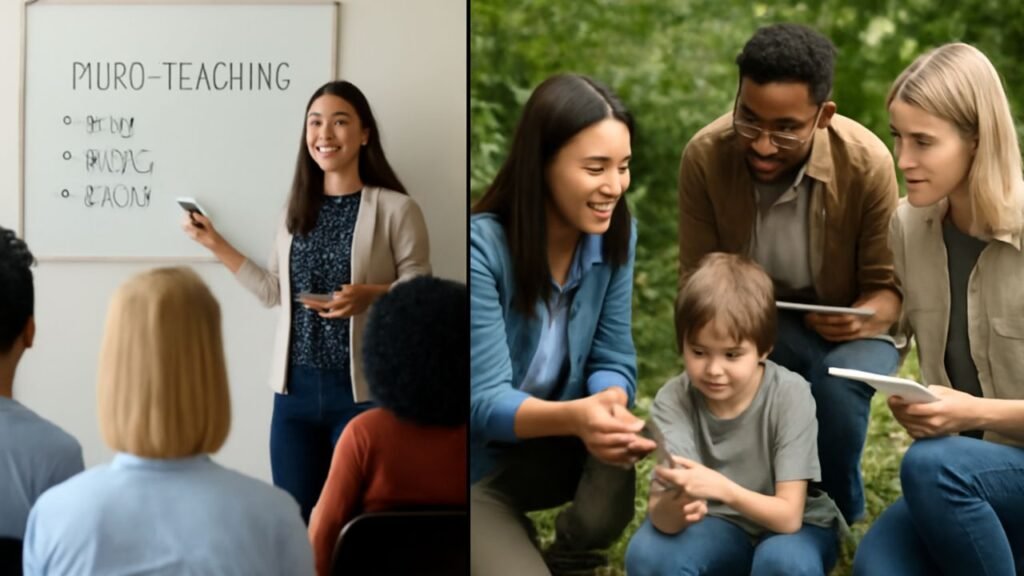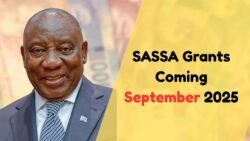Teaching Learning Techniques – Teaching-Learning Techniques, Micro-Teaching, and Field Experience at SBS B.Ed. College form the core of teacher education, providing students with a balance of theoretical knowledge and practical skills. At SBS B.Ed., these components are integrated into the curriculum to ensure that future teachers are fully prepared to handle diverse classroom situations. Teaching-learning techniques include interactive strategies such as group discussions, collaborative projects, and the use of digital tools to enhance learning outcomes. These methods encourage active participation and critical thinking among students, making the classroom a dynamic environment for knowledge construction. Micro-teaching, an essential part of the program, allows students to practice teaching in a controlled setting, receiving feedback from peers and mentors. Field experiences in schools provide real-world exposure, enabling students to observe, assist, and eventually manage classrooms independently. According to the National Council for Teacher Education (NCTE), integrating these methods ensures that teacher education programs develop competent and reflective educators capable of fostering inclusive and effective learning environments.

 Why Choose SBS B.Ed. College? Trusted Name in Teacher Education With a Student-Centric Approach
Why Choose SBS B.Ed. College? Trusted Name in Teacher Education With a Student-Centric Approach
Effective Teaching-Learning Techniques in B.Ed. Programs
The teaching-learning techniques implemented at SBS B.Ed. College are designed to cultivate both pedagogical and content knowledge in student teachers. Techniques such as interactive lectures, problem-based learning, and cooperative learning enhance student engagement and encourage collaborative problem-solving skills. The use of digital resources, including e-learning platforms and educational apps, provides students with innovative ways to deliver lessons and assess learning outcomes. According to ResearchGate, effective teaching-learning strategies not only improve academic performance but also foster critical thinking, creativity, and adaptability. At SBS B.Ed., emphasis is also placed on inclusive education practices, ensuring that teaching techniques cater to students with diverse learning needs. By mastering these techniques, future teachers develop the ability to create engaging, equitable, and student-centered learning environments, which are essential for modern classrooms and inclusive pedagogy.
Micro-Teaching: Bridging Theory and Practice
Micro-teaching at SBS B.Ed. College serves as a bridge between theoretical knowledge and classroom practice. During micro-teaching sessions, students teach short, focused lessons to their peers under the supervision of experienced faculty. These sessions provide a safe environment for practicing lesson delivery, classroom management, and communication skills. Feedback from instructors and peers helps students identify areas of improvement, refine teaching strategies, and build confidence. According to Kumar (2019), micro-teaching significantly enhances teaching competence and reduces anxiety when facing real classroom situations. At SBS B.Ed., these sessions are complemented with reflective practices such as self-evaluation journals and video recordings, allowing students to critically analyze their teaching techniques. This combination of practice and reflection ensures that student teachers emerge as confident, adaptable, and skilled educators capable of engaging diverse learners effectively.
 News & Announcements – Important Updates on Admission Dates, University Notices, and NCTE Guidelines
News & Announcements – Important Updates on Admission Dates, University Notices, and NCTE Guidelines
Field Experience: Real-World Classroom Exposure
Field experience is an indispensable component of teacher education at SBS B.Ed. College, providing students with hands-on opportunities to observe, assist, and conduct lessons in real classroom settings. During internships, students interact with pupils of different age groups, learning to apply teaching-learning strategies, manage classroom behavior, and adapt lesson plans according to student needs. According to Education Next, field experiences enhance practical teaching skills, improve student engagement techniques, and develop professional judgment in classroom management. Mentorship from experienced teachers during field placements ensures that student teachers receive guidance, support, and constructive feedback. Through these experiences, B.Ed. students develop the ability to create inclusive, engaging, and well-structured lessons, preparing them for successful careers in education.
Integration of Reflective Practice and Continuous Assessment
Reflective practice and continuous assessment are integral to maximizing the benefits of teaching-learning techniques, micro-teaching, and field experience at SBS B.Ed. College. Students are encouraged to maintain reflective journals where they document classroom observations, teaching challenges, and strategies for improvement. Peer feedback and mentor evaluations provide additional insights, allowing student teachers to refine their instructional approaches. According to NCERT Guidelines, continuous assessment through lesson demonstrations, projects, and teaching reflections ensures that teacher education programs produce competent and thoughtful educators. At SBS B.Ed., these strategies cultivate self-awareness, adaptability, and critical thinking, enabling graduates to handle dynamic classroom situations confidently. By combining theoretical learning with practical exposure and reflective practices, SBS B.Ed. College ensures that its students are well-prepared to meet the demands of modern, inclusive, and effective education.





